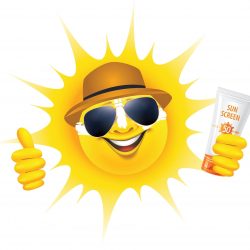New Article – Investigating Skin Cancer Risk and Sun Safety Practices Among LGBTQ+ Communities in Canada
Congratulations to Dr. François Lagacé, Dr. Ivan Litvinov and team on their new article, “Investigating Skin Cancer Risk and Sun Safety Practices Among LGBTQ+ Communities in Canada.” Participants from Atlantic PATH and the Manitoba Tomorrow Project were invited to participate in the SunFit study led by Dr. Litvinov at McGill University. Skin cancer prevention requires effective sun safety practices. Previous studies have shown that LGBTQ+ individuals exhibit lower sunscreen use and higher tanning bed usage compared to their non-LGBTQ+ counterparts. This SunFit study is the first to assess skin cancer risk factors, sun-protective behaviors, and skin cancer concerns among LGBTQ+ participants across Canada.


